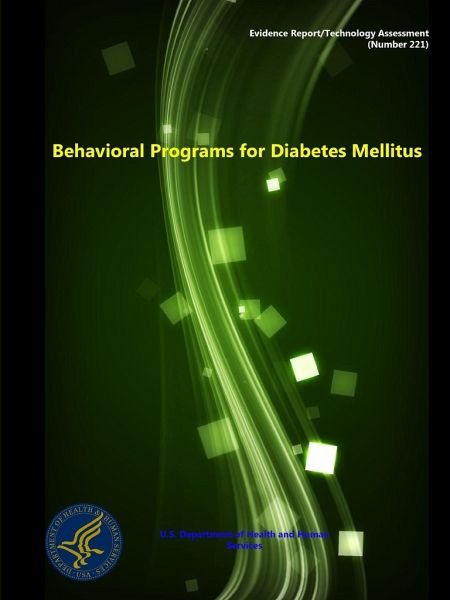
Behavioral Programs for Diabetes Mellitus - Evidence Report/Technology Assessment (Number 221)
Versandkostenfrei!
Versandfertig in 1-2 Wochen
32,99 €
inkl. MwSt.

PAYBACK Punkte
16 °P sammeln!
Behavioral programs for T1DM offer some benefit for glycemic control when followup extends beyond end of intervention up to 6 months. There was no statistically significant difference at end of intervention or followup timepoints longer than 6 months, although our confidence in these findings is low and benefit cannot be ruled out. More evidence is required to determine the effects of behavioral programs for other outcomes, including lifestyle behaviors, body composition, diabetes-specific quality of life, diabetes distress, and complications. For T2DM, our analyses showed limited benefit in g...
Behavioral programs for T1DM offer some benefit for glycemic control when followup extends beyond end of intervention up to 6 months. There was no statistically significant difference at end of intervention or followup timepoints longer than 6 months, although our confidence in these findings is low and benefit cannot be ruled out. More evidence is required to determine the effects of behavioral programs for other outcomes, including lifestyle behaviors, body composition, diabetes-specific quality of life, diabetes distress, and complications. For T2DM, our analyses showed limited benefit in glycemic control from DSME programs offering ¿10 hours of contact with delivery personnel and suggested that in-person delivery of behavioral programs is more beneficial than communicating the information with incorporation of technology. Behavioral programs seem to benefit individuals having suboptimal or poor glycemic control more than those with good control.












